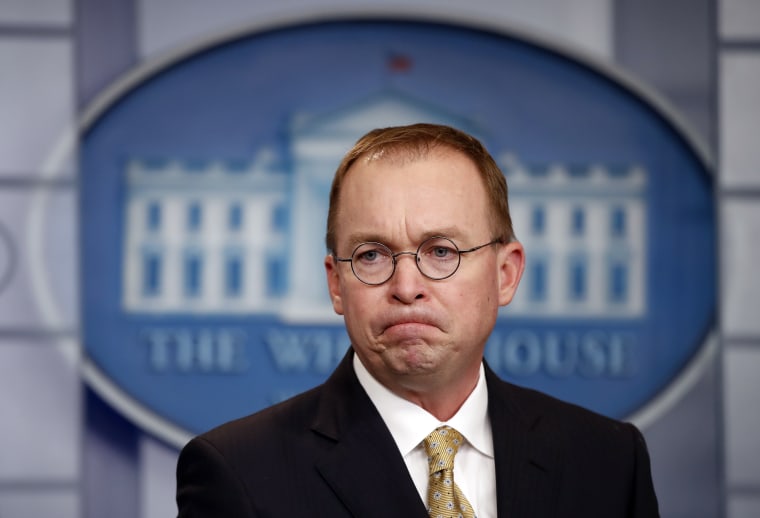When Kirstjen Nielsen was forced from her post as Homeland Security secretary, it quickly became obvious that one of the sources of tension between her and Donald Trump was her reluctance to ignore federal laws. The president reportedly urged her, repeatedly, to implement immigration policies that were "clearly illegal," and when Nielsen balked, Trump grew "infuriated."
It brought to mind recent remarks from former Secretary of State Rex Tillerson, who told an audience about the kind of instructions he'd receive from Trump. "So often, the president would say, 'Here's what I want to do and here's how I want to do it,'" Tillerson explained. "And I would have to say to him, 'Mr. President I understand what you want to do but you can't do it that way. It violates the law.'"
Special Counsel Robert Mueller's report, of course, is also filled with examples of Trump directing people to take legally dubious actions.
But White House Chief of Staff Mick Mulvaney sat down with The Atlantic recently, and he suggested there's been some confusion about the president's instructions.
Often, Mulvaney said, the president is not telling aides "to do something illegal"; he's "just giving me ideas on what his priorities are and what he wants to accomplish."
Oddly enough, this sounds a bit like what Tillerson said, only in a way intended to sound more flattering to the president.
Let's say, for example, Trump speaks with Department of Homeland Security officials and tells them to start ignoring existing federal asylum laws -- something the president has been accused of doing. In Mulvaney's model, Trump hasn't told officials "to do something illegal"; he's simply sharing some ideas about the kind of border policies, some of which may be illegal, he'd like to see implemented.
Or put another way, the president doesn't give directives, encouraging people who work for him to commit crimes, so much as he tells them about his priorities without any real regard for whether his goals are legal or not.
How ... reassuring?
Garance Franke-Ruta recently published a Twitter thread, highlighting "all the different ways Trump has asked people who work for him or the government to break laws." Alas, it was not short.
Mick Mulvaney's apparent defense of this dynamic is that Trump has actually just asked people who work for him to pursue his vision without regard for legal boundaries. The president wants what he wants, and he neither knows nor cares what's permissible under the law.
That's a far less persuasive defense than the White House chief of staff may realize.
